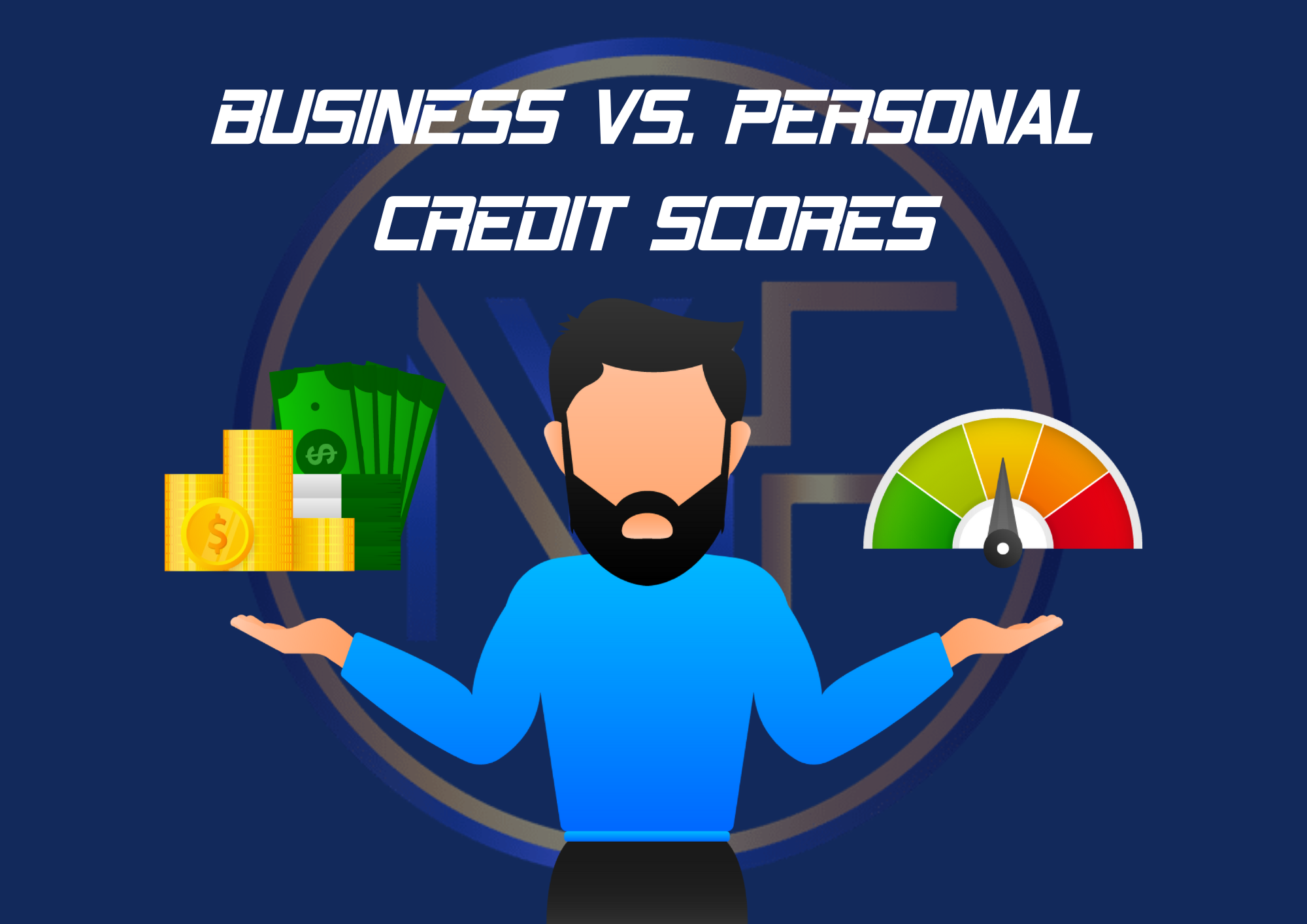
Introduction
Credit scores play a crucial role in both personal and business finances. Whether you’re an individual seeking a loan or a business owner looking for financing options, understanding the differences between personal and business credit scores is essential. In this blog post, we will explore the fundamentals of personal and business credit scores, their significance, and tips to improve them.
I. Personal Credit Score:
A. Definition and Components:
1. A personal credit score is a numerical representation of an individual’s creditworthiness.
2. Components include payment history, credit utilization, length of credit history, credit mix, and new credit.
B. Importance:
1. Personal credit scores are crucial when applying for personal loans, mortgages, credit cards, or auto loans.
2. Landlords, insurance companies, and potential employers may also consider personal credit scores.
C. Factors Affecting Personal Credit Score:
1. Payment history: Timely payment of bills and debts.
2. Credit utilization ratio: The percentage of available credit used.
3. Length of credit history: Longer credit history demonstrates stability.
4. Credit mix: A healthy mix of different types of credit, such as credit cards, loans, and mortgages.
5. New credit: Opening multiple credit accounts in a short period can negatively impact the score.
D. Tips to Improve Personal Credit Score:
1. Pay bills and debts on time.
2. Keep credit card balances low and maintain a low credit utilization ratio.
3. Avoid closing old credit accounts, as they contribute to credit history length.
4. Regularly review credit reports for errors and dispute any inaccuracies.
5. Use credit responsibly and avoid excessive new credit applications.
II. Business Credit Score:
A. Definition and Components:
1. A business credit score assesses a company’s creditworthiness.
2. Components include payment history, credit utilization, public records, company size, and industry risk.
B. Importance:
1. Business credit scores influence loan approvals, interest rates, and credit limits.
2. Suppliers, vendors, and partners may consider business credit scores before entering into contracts.
C. Factors Affecting Business Credit Score:
1. Payment history: Timely payment of business loans, credit lines, and vendor invoices.
2. Credit utilization: The percentage of available credit used by the business.
3. Public records: Bankruptcies, tax liens, and judgments against the business.
4. Company size and industry risk: The size of the business and its industry’s overall credit risk.
D. Tips to Improve Business Credit Score:
1. Establish separate business credit accounts and maintain a good payment history.
2. Keep credit utilization low and pay vendors and suppliers on time.
3. Regularly monitor business credit reports for inaccuracies or fraudulent activity.
4. Maintain positive relationships with creditors and suppliers.
5. Be cautious while applying for new credit and avoid excessive borrowing.
Conclusion:
Both personal and business credit scores play significant roles in financial transactions. By understanding the key differences and the factors that influence these scores, individuals and business owners can take steps to improve them. Responsible credit management, timely payments, and regular monitoring of credit reports are crucial in maintaining healthy credit scores. Whether for personal or business purposes, a good credit score opens doors to favorable financial opportunities and helps build a solid foundation for future growth and success.
